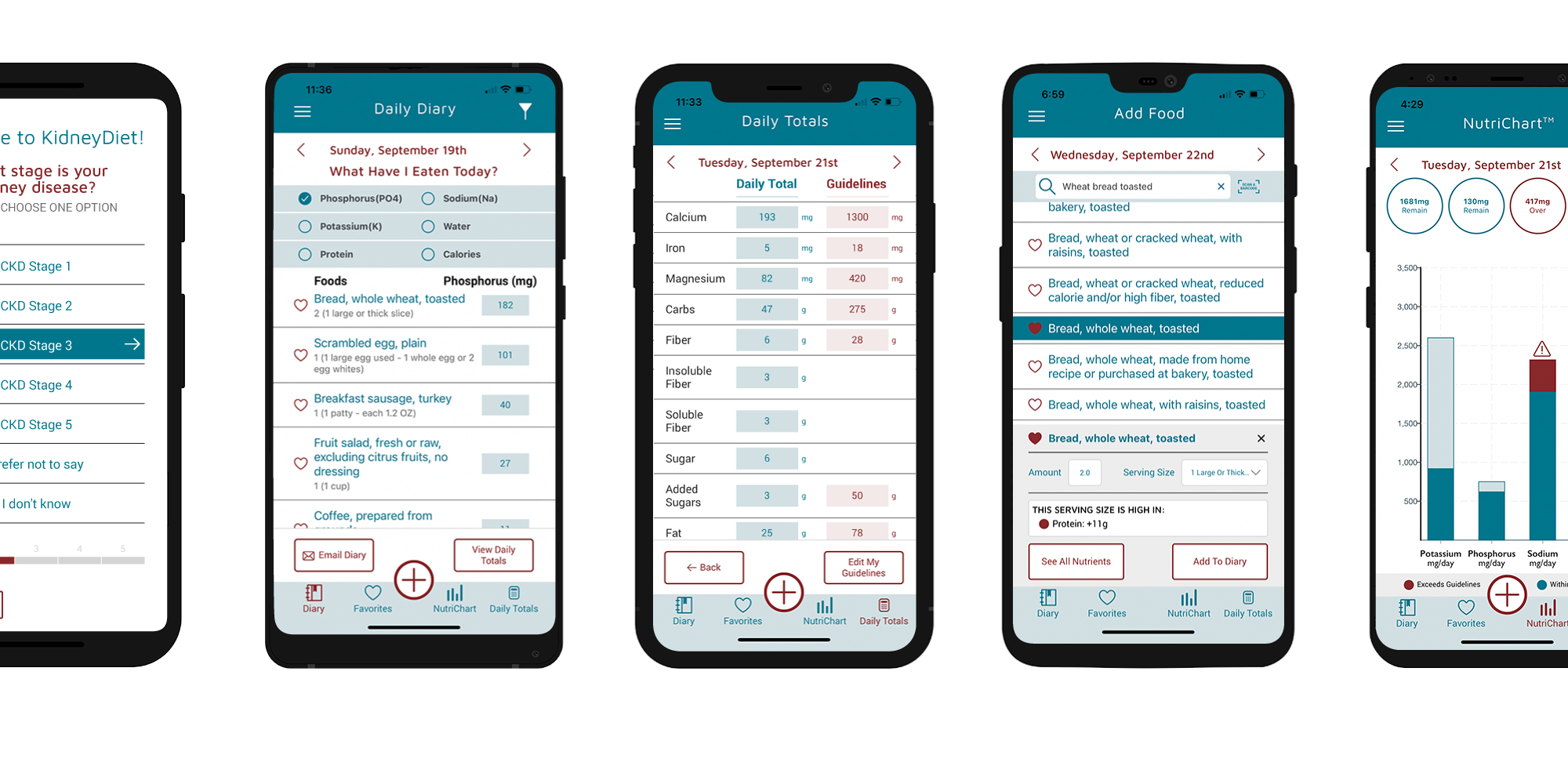Is a renal diet app right for you?
The app is right for you if you need to:
-
- Track your nutrient intake
- Track your fluid intake
- Limit the amount of phosphorus, potassium, and protein in your diet
- Want to easily share information with your dietitian

A kidney diet is essential for those managing chronic kidney disease (CKD) or seeking a healthy diet to support their kidney function. People with kidney disease must carefully choose foods that align with their nutritional needs, especially for controlling high blood pressure and maintaining a healthy weight.
When following a kidney diet, it’s crucial to focus on kidney-friendly recipes that emphasize healthy fats like olive oil, low sodium choices, and whole grains. Avoiding high phosphorus foods such as dairy foods, orange juice, and winter squash can help manage phosphorus levels.
For people with kidney disease, how much protein you consume is important. In the early stages of CKD, limiting protein intake may be necessary, while those in later stages may require more protein to build muscle and maintain strength.
To control blood pressure, it’s important to avoid too much sodium from packaged foods, deli meats, and canned vegetables. Reading food labels and choosing low sodium options can support kidney health and prevent fluid buildup.
People with kidney disease need to manage their potassium levels by limiting certain foods like winter squash and orange juice. Monitoring how much fluid you drink is also crucial to avoid fluid buildup, which can affect kidney function.
To stay healthy, individuals following a kidney diet should ensure they are getting enough vitamins and nutrients. Calcium supplements, vitamin D, and phosphate binders may be recommended by healthcare providers. Working with a registered dietitian can help create an eating plan that meets individual needs.
A well-structured eating plan that includes foods with healthy fats, low sodium, and enough protein is key to managing chronic kidney disease. Following dietary guidelines can improve kidney function, control blood sugar levels, and reduce the risk of heart disease and bone disease.
By choosing the right balance of foods, limiting too much phosphorus and sodium, and incorporating healthy fats, you can support your kidney function and overall health. The National Kidney Foundation recommends working with a healthcare provider to create a customized meal plan tailored to your specific dietary needs.
Dairy Products
Milk
Cheese
Yogurt
Ice cream
Meats and Protein Sources
Organ meats (liver, kidney)
Processed meats (deli meats, hot dogs, bacon)
Sardines
Shellfish
Grains and Baked Goods
Whole grain bread
Bran cereals
Oatmeal
Brown rice
Beverages
Cola drinks
Beer
Chocolate drinks
Nuts and Seeds
Almonds
Cashews
Sunflower seeds
Pumpkin seeds
Legumes and Beans
Lentils
Black beans
Chickpeas
Soy products
Convenience and Processed Foods
Fast foods
Frozen meals
Packaged snacks
Foods with phosphate additives (often found in processed foods)
Combat high blood pressure with a healthy diet
Tags: healthy kidneys, food labels, packaged foods, kidney disease, salt substitutes, rice cereals, blood sugar, herbal supplements, potassium apples, early stages, dairy foods, blood vessels, eating plan, specific diet, stay healthy